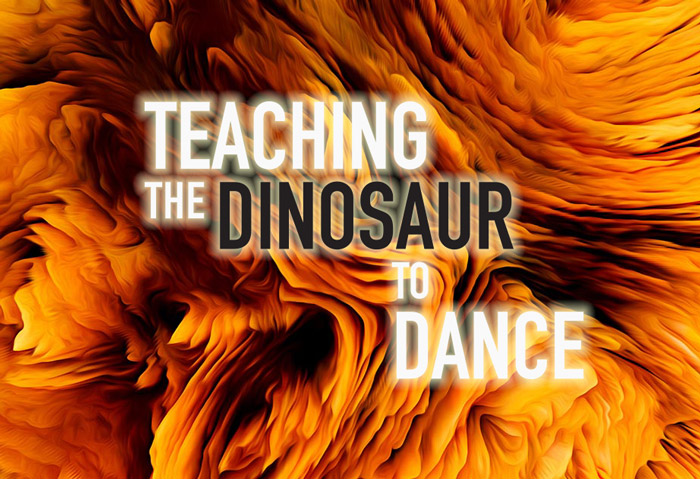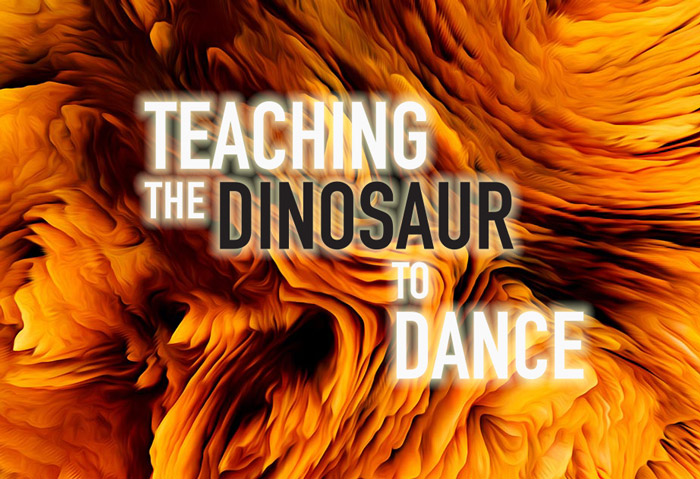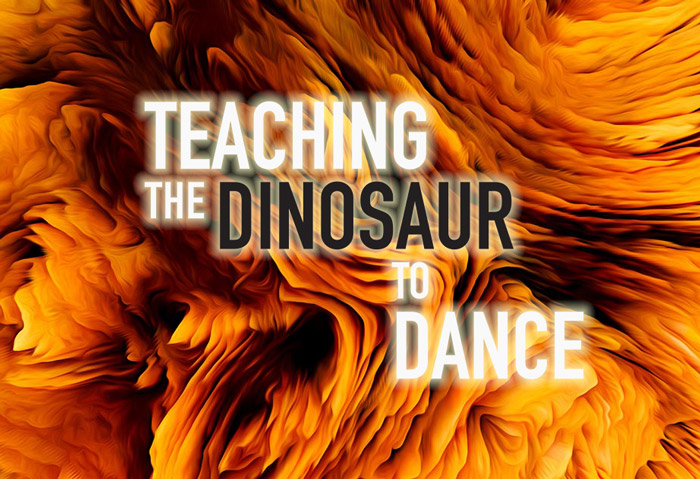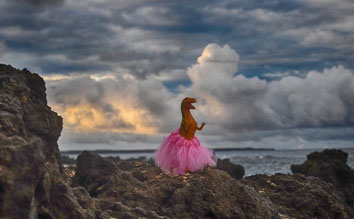APRIL 23
/
Donna Kennedy-Glans
After decades of peaceful coexistence on Russia's borders, the Finns finally relinquished neutrality and sought shelter within the military alliance.
APRIL 16
/
Donna Kennedy-Glans
Dishing with DKG: Advancing any energy project, green or otherwise, is rarely straightforward. There’s something to be gleaned from projects that work
APRIL 9
/
Donna Kennedy-Glans
Dishing With DKG: Nima Dorjee’s not suggesting a witch hunt, but asking Canadians to think more critically about what we're getting out of relationships with China
MARCH 26
/
Donna Kennedy-Glans
Haskayne's Calgary office is a shrine to the days when he and others struggled to build a Canadian oil industry
MARCH 19
/
Donna Kennedy-Glans
The University of Alberta professor is a pioneer in AI and until recently ran the DeepMind lab in Edmonton until Google pulled the plug
MARCH 12
/
Donna Kennedy-Glans
Does anyone care that Canada relies on the U.S. for our defence? Trudeau knows that voters aren’t really interested, suggests former CAF officer David Harries.
FEBRUARY 5
/
Donna Kennedy-Glans
'He’s a long way from Brantford,' the ex-Calgary Flame says when asked what he thinks of the Great One being a pitchman for a gambling site.
JANUARY 29
/
Donna Kennedy-Glans
As politicians debate the meaning of 'just transition,' Luisa DaSilva gets on with her job of helping fossil fuel workers learn new skills
JANUARY 15
/
Donna Kennedy-Glans
'Yes, there are corporate imperatives to reduce carbon, to get to net zero, globally, but where the action is and the deals are being struck is the U.S'
JANUARY 8
/
Donna Kennedy-Glans
'I’m not political. I really don’t enjoy this,' Lund says. Yet here he is. Point-man on a political issue, so egregious and in his backyard, that he’s in hip-deep
JANUARY 1
/
Donna Kennedy-Glans
Cooper and Jackson describe 'a crackling tension' in downtown Calgary; there are too few people living in the city core to make it feel safe
DECEMBER 25
/
Donna Kennedy-Glans
Garner has learned she has to swim or she’ll sink and she’s stopped pretending that she needs to be liked
DECEMBER 18
/
Donna Kennedy-Glans
In this first of a new series, Donna Kennedy-Glans speaks to Miller, a constitutional lawyer with strong opinions on how to fix federalism
DECEMBER 11
/
Donna Kennedy-Glans
Romanow’s instinct in a volatile environment is to take less risk
SEPTEMBER 8
/
Donna Kennedy-Glans
The job of politicians is to provide good and effective government. With all the emphasis on getting elected, that simple aim can be forgotten.
SEPTEMBER 7
/
Donna Kennedy-Glans
You can’t destroy an energy system built on hydrocarbons without having a reliable alternative in hand.
JULY 22
/
Donna Kennedy-Glans
Citizen frustration with elected politicians and politics is well-documented but who is paying attention to the backbone of government, the bureaucracy?
JULY 15
/
Donna Kennedy-Glans
With countries like Germany firing up coal plants, rebooting nuclear and rationing hydrocarbons, it may be prudent to put the question of domestic refining capacity back on the table in Canada.
JULY 14
/
Donna Kennedy-Glans
Any bump in global LNG supply — including by Canada — will help respond to Europe’s energy crisis.
JUNE 28
/
Donna Kennedy-Glans
A lack of diversification in the oil sector may not serve Canadians’ longer-term interests
JUNE 18
/
Donna Kennedy-Glans
Let me assure you that finger-pointing is a colossal waste of energy in a crisis.
JUNE 17
/
Donna Kennedy-Glans
It’s challenging to find a path through the maze of energy choices and net-zero carbon policies in the midst of a war in Ukraine that’s causing commodity prices to spiral out of control.
MAY 12
/
Donna Kennedy-Glans
Investors in Canadian oilsands understand the harsh consequences of restricted oil production
APRIL 27
/
Donna Kennedy-Glans
Cold War 2.0, which is taking shape amid Russian President Vladimir Putin’s war against Ukraine, has compelled several European nations to step up their military capacity and wean themselves from dependence on Russian oil and gas.
APRIL 26
/
Donna Kennedy-Glans
This is precisely the kind of leadership Ukraine needs from its allies.
APRIL 20
/
Donna Kennedy-Glans
According to media reports, CNOOC, the China National Offshore Oil Corporation, is positioning itself to sell “marginal and hard to manage” assets in Britain, Canada and the United States, possibly including Nexen Inc.
APRIL 12
/
Donna Kennedy-Glans
The companies that will not only survive but thrive in these uncertain times need to deploy five key strategies to move beyond business as usual.
APRIL 7
/
Donna Kennedy-Glans
When gasoline prices hit $3 a litre, political leaders won’t be able to ignore the public backlash
APRIL 3
/
Donna Kennedy-Glans
As a leader, how do you hold compassion for the people around you and at the same time build the capacities and momentum required to move your organization beyond business as usual?
MARCH 24
/
Donna Kennedy-Glans
Even renewables companies can’t avoid the 'social' and 'governance' parts of ESG.
Western oil and gas operators are exiting Russia, but what about investors in renewables? Among the largest renewables players in Alberta — EDF Renewables, a wholly-owned subsidiary of the French utility EDF Group, and Italy’s ENEL Green Power —
MARCH 13
/
Donna Kennedy-Glans
Politicians know that they will be held accountable if they can’t fix the problem of out-of-control energy prices.
MARCH 7
/
Donna Kennedy-Glans
CEOs of energy companies with projects in Russia are facing career-defining leadership moments. What do you do when your corporate investments nearly overnight become politically, economically and socially untenable to your key stakeholders?
MARCH 7
/
Donna Kennedy-Glans
... there are exceptional geologists and geophysicists who have figured out how to use intuition to access the fourth dimension. These are the people who can see around corners. How do they do it?
MARCH 3
/
Donna Kennedy-Glans
In times of war, hydrocarbons still hold the power to decide winners and losers. That fact feels like an alternative reality, entirely out of synch with zealous climate change advocacy and aspirational corporate promises to get to net-zero emissions by 2030 or 2040.
MARCH 1
/
Donna Kennedy-Glans
There is no denying that polarization and entrenched positioning create the conditions for black-and-white thinking and often, conflict.
FEBRUARY 22
/
Donna Kennedy-Glans
Investing in renewables in Alberta is a great deal for investors. But what are Albertans actually getting for their money?
FEBRUARY 18
/
Donna Kennedy-Glans
Not only is the not-for-profit sector expected to address the disparities and fill the gaps exposed and exacerbated by the COVID-19 pandemic, nonprofit leaders are not exempt from the calls for greater accountability, equality, fairness, and...
JANUARY 11
/
Donna Kennedy-Glans
Interviewer: Welcome to our blog Figment. We’re delighted to introduce you to our readers. And we’re keen to know what you have to say about Netflix’s new movie, Don’t Look Up.
Figment: I’ve seen this movie before!
Figment: I’ve seen this movie before!
DECEMBER 1
/
Donna Kennedy-Glans
DANCING WITH A PARTNER in sharp stiletto heels is dangerous. Yet done well—both partners engaged with one other in a state of ongoing harmonization—the art of tango can be elegant. That’s the level of focus and attention that the sustainability dance requires of enterprise leaders and decision-makers.
DECEMBER 1
/
Donna Kennedy-Glans
FOR MANY REASONS, several of which were accelerated by COVID-19, we’ve reached a turning point—the extinction of business as usual. Change is inevitable. Simply striving to maintain the status quo is...
DECEMBER 1
/
Donna Kennedy-Glans
IN A POLARIZED WORLD, people either champion causes—like a “just" energy transition, LGBTQIA+ rights, or reconciliation with Indigenous peoples—or they fervently oppose these positions and stare down anyone who dares to think differently. You are either with me or you are against me! You either believe in man-made climate change or you are a climate change denier. People draw others who think the same way into their echo chambers, and social media amplifies the voices.
DECEMBER 1
/
Donna Kennedy-Glans
WHAT IS “FAIR” is in the eye of the beholder. It’s like beauty. And right now, what is seen as “fair” and “equitable” is being recalibrated.
DECEMBER 1
/
Donna Kennedy-Glans
BUILDING OR REBUILDING for a better future for your enterprise includes re-inventing how you do business, how you make decisions and how you serve a broader range of stakeholders. Moving from surviving to thriving requires intention and design; this kind of change doesn’t just happen.
DECEMBER 1
/
Donna Kennedy-Glans
The telling of a heartfelt story motivates action like nothing else. What is your enterprise story? What lessons are there in your organization’s history and culture, and how can you apply them to the challenges of a changed world? And how are others hearing your enterprise story?
DECEMBER 1
/
Donna Kennedy-Glans
EVERYTHING IS CHANGING and shifting. Cycle times are speeding up. What will have value two years from now? Cryptocurrency, lithium, Facebook’s new “metaverse”? We honestly don’t know. What is certain; the new future we are creating is going to be different than the world we leave behind.
DECEMBER 1
/
Donna Kennedy-Glans
Stewardship is the ultimate form of leadership. It requires decision-makers to think beyond themselves. It’s the art of the long view, a perspective that may span beyond a single lifetime and even generations. Many of us know people who practice stewardship in their personal lives; can stewardship operate as an enterprise aim?
DECEMBER 1
/
Donna Kennedy-Glans
THERE IS A lot of pressure on organizations of all kinds to be fairer, more accountable, and more sustainable. Significant social movements—as diverse as MeToo, Occupy, Black Lives Matter, Arab Spring, Fridays for Future, to name but a few—pressure companies, government agencies and non-profits to step up and do things differently.






